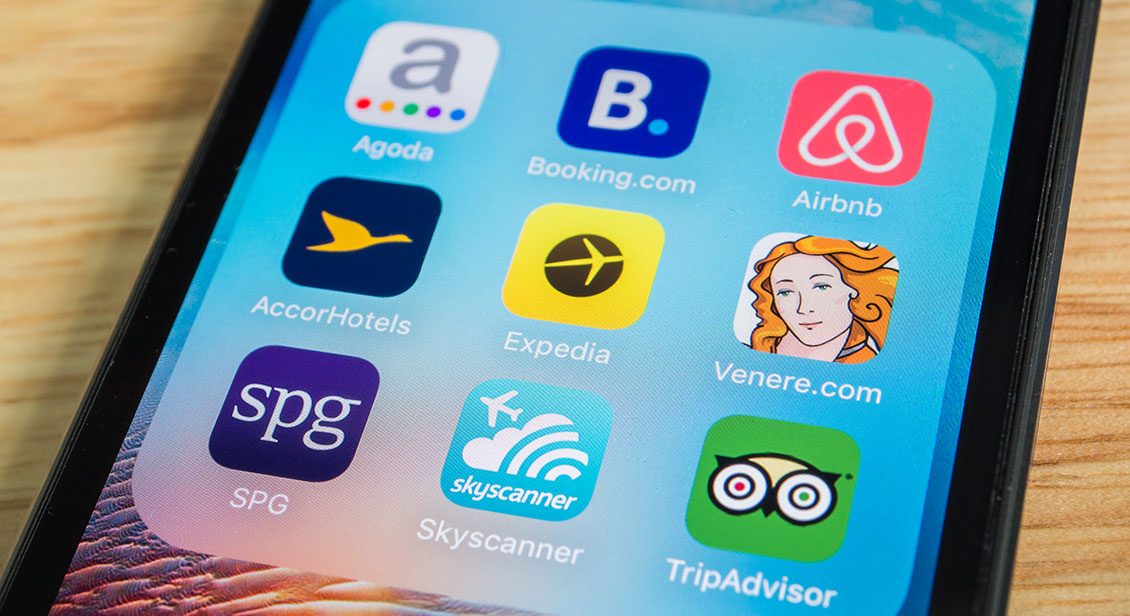General

Top tips for managing and adding apps
There's a reason why they call them smartphones… with the help of a clever app, your phone can turn into just about anything - a street directory, notebook or even a flashlight. And that's just the beginning.
Smartphones are designed to do more than phone calls and texts. They come with apps and functions built into the phone so you can do things like search the internet, check email and listen to podcasts. But there are literally millions of apps (we’ll explain what these are below) that go even further to entertain, inform and make life easier.
In this article, we take a look at some amazing apps that can help you find your keys, plan your road trip and monitor your heart rate. We also have safety tips for you to keep in mind when adding and managing apps on your smartphone.
If you’re new to the world of apps and would like to start from the beginning, you can find out how to add, manage and delete apps in our topic, Useful apps.
In this article:
What is an app?
The word ‘app’ is short for application. It’s like a computer program that’s designed to do something specific on your smartphone, tablet or computer. For instance, a weather app provides the day’s forecast. Apps are specifically built for use on a smaller screen like a smartphone and tablet, but they can also be used on computers. You don’t need to enter a web address to access an app, it simply opens ready for use when you click on it.
Safety tips: adding and managing apps
Only get apps from the official stores: Apple’s App Store or Google Play store for Android devices. These official stores are apps themselves that come pre-installed on your device.
Check app reviews and ratings. You can find the reviews on the same page where you download the app in an app store. The reviews will give you an idea of how useful the app is and if there are any potential issues.
Install and update apps when you’re connected to your home Wi-Fi network. Do this instead of using your mobile data as it will save on your monthly mobile data allowance.
Free versus paid apps. Most apps are free but they contain ads, or in-app purchases that prod you to pay for extra features or subscriptions. These charges are optional and are charged to the credit card used to sign up to the app store. On the other hand, paid apps usually contain less (or no) ads and provide more features than a free app. When you have the option to choose from several apps that do the same thing, try the free app first instead of the paid app to see whether you like it.
Carefully consider access requests. An app may ask you for permission to access different features on your phone, like your camera or location. Consider whether the app really needs to access these features to do its job. For example, does a crossword games app need access to your camera? No. But a communications app needs access to your contacts list so you can call or message your contacts. As a general rule, don’t download an app if you’re not comfortable with what’s being asked of you.
Delete apps when you no longer need them. Not only does it free up storage space on your phone, it can also make your phone more secure.
Amazing apps you need to know about
There’s no end to what your smartphone can do with a little help from an app, but here are a few that may come in handy.
Find your keys
Yes, there’s an app for that. But you need to also buy a small electronic tracking tile to attach to your keys or anything else you tend to lose. You attach the little tile to the item, then with an app on your smartphone you can turn on an alert, so said tile makes a beeping noise to help you find the item. You can also see the last known location on a map. Tile and Chipolo are two popular examples of key finder trackers and apps. You can buy the tracking tiles from most electronics stores.
Monitor your heart rate
You can now check your heart rate with just your phone and an app. Some heart rate apps, like the popular Instant Heart Rate, use the flash of your phone’s camera to scan your finger to detect your heartbeat and measure the flow of blood beneath your skin’s surface. It’s important to note that heart rate apps are designed more for fitness and shouldn’t be used to replace a visit to the doctor.
Train your brain
Brain training apps claim to sharpen your thinking skills and improve your memory. Many of these apps track your progress as you complete a range of fun and challenging games that test your memory, language, focus and problem-solving skills. There are many brain training apps to choose from, but popular examples include BrainHQ, and CogniFit which has been specifically designed for people over the age of 55.
Plan your road trip
Leave it to the apps to help plan, organise and manage your next road trip. Road trip planning apps are designed to help you feel more organised so you spend more time enjoying your trip. Short of packing your bags for you, these apps can help you map out your trip, find the best driving route, tell you what to pack, and find local attractions, cafes, and camping grounds.